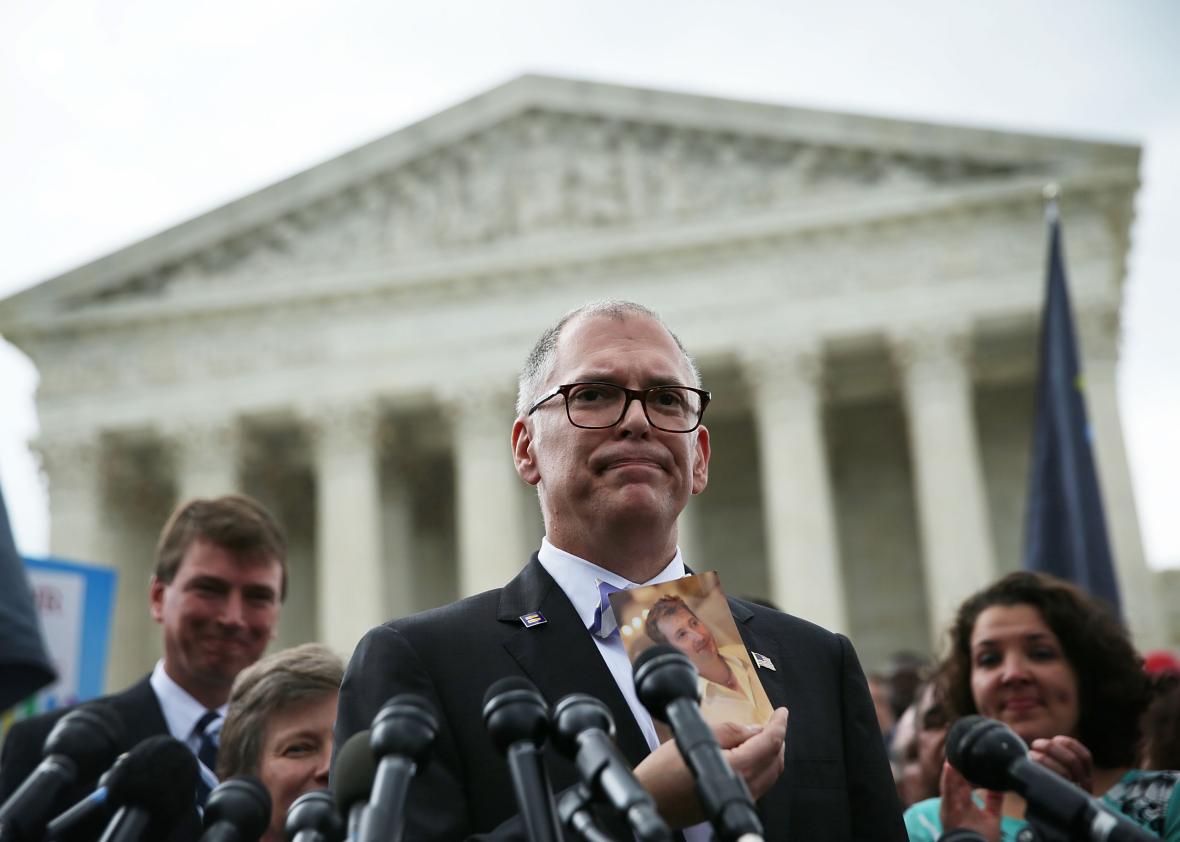In 2015’s Obergefell v. Hodges, the Supreme Court ruled that states must provide marriage rights to same-sex couples “on the same terms and conditions as opposite-sex couples.” So it may be rather surprising that in 2017, some conservative states continue to insist that they can deny gay couples the rights and benefits granted to heterosexual couples—simply because same-sex spouses are of the same sex. One particular flashpoint is birth certificates, and the latest battle occurred in South Carolina, where the government claimed it need not list same-sex parents on their child’s birth certificate. Fortunately, on Wednesday, a federal judge shot down this bizarre assertion, ordering the state to list same-sex couples on birth certificates. But this battle is far from over, and its final resolution will likely have to come from the Supreme Court itself.
Before we get into the meat of Wednesday’s ruling, a quick primer on birth certificates is in order. In the United States today, birth certificates are not some mystical recognition of an immutable genetic truth. They are a legal document whose primary purpose is identification of both the individual who was born and the family unit in which he or she belongs. That is why states list adoptive couples on their adopted child’s birth certificate and why states have long listed the birth mother’s husband as the baby’s parent—even if he is known not to be the child’s biological father. These certificates are vital records, and the government views them as proof of a child’s actual parentage, not a literal indication of who sired and birthed the baby.
With that in mind, let’s turn to the South Carolina case, which arose after Jacqueline Carson gave birth to twins. Jacqueline is lawfully married to a woman, Casy Carson. South Carolina typically lists a birth mother’s spouse as the child’s second parent—again, even if that spouse is known not to be the child’s biological parent. But because Casy Carson is a woman, the state refused to list her as the twins’ second parent. The couple sued in federal court, alleging a violation of their Due Process and Equal Protection rights under the 14th Amendment as interpreted in Obergefell.
And of course, they won, because that’s the outcome that Obergefell plainly requires. As U.S. District Judge Mary Geiger Lewis recognized, listing a birth mother’s spouse as her child’s second parent is one of the “terms and conditions” of civil marriage in South Carolina. It is a benefit provided to opposite-sex couples; it therefore cannot be denied to same-sex couples simply because they are gay. Amusingly, South Carolina didn’t bother to argue otherwise in court, declining to contest the Carsons’ assertion that its actions violated the 14th Amendment or to appeal Lewis’ decision. Instead, the state will enter into a consent decree, agreeing to list same-sex spouses on birth certificates moving forward.
Other federal judges have reached the same conclusion as Lewis, ordering states like Florida and Nebraska to list same-sex couples on birth certificates. (Nebraska tried to list the nonbiological same-sex parent as a “friend” on birth certificates, which needless to say, did not hold water in court.) But there is one glaring deviation from this trend: In December, the Arkansas Supreme Court held that the state was not required to list same-sex couples on birth certificates. Civil rights advocates have urged the U.S. Supreme Court to reverse this decision—which it really must do unless it wishes to retreat from Obergefell’s central holding. Indeed, this case is so easy that the court needn’t hear oral arguments; the justices should simply reverse the Arkansas Supreme Court’s decision in a summary disposition and send the case back down for proper resolution. It is frankly embarrassing that the Arkansas courts have let this issue drag on for so long. Obergefell settled the matter. And if even South Carolina can acknowledge that fact, Arkansas should be able to as well.
